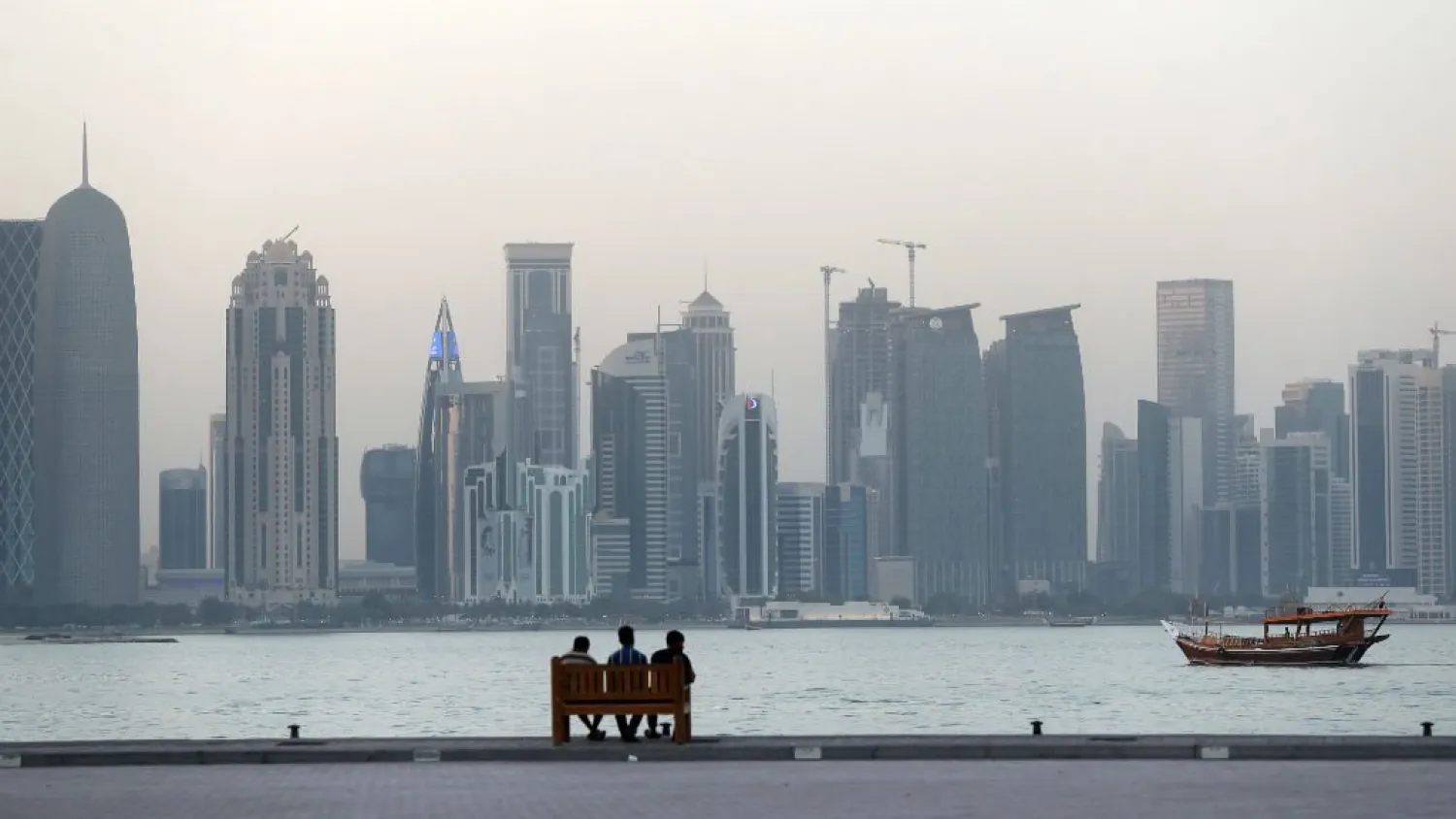Sheikh Mubarak bin Khalifa Al Thani, who was recently revealed as a figure opposed to the ruling Al Thani family in Qatar, said that the people of the Gulf state are living in fear due to the oppression of the government.
He told Asharq Al-Awsat that he seeks to return to Qatar, along with other opposition figures, in order to “cleanse the country of the ruling regime and its reckless policies.”
Sheikh Mubarak currently resides in the Saudi capital Riyadh and took part in an opposition meeting in December that brought together over 20 members of the Al Thani family.
He said that several members of the family had contacted him to express their interest in joining efforts to “save Qatar from the policies of the current government.”
“These figures are unhappy with the developments in the country and they fear over the safety of their sons and properties,” he added.
Asked by Asharq Al-Awsat to assess the situation in Qatar seven months after the diplomatic and economic boycott of Saudi Arabia, Bahrain, Egypt and the United Arab Emirates, Sheikh Mubarak replied: “None of the Qatari people are living comfortably.”
The majority of the people are concerned about their livelihood and none of them want to stray away from their brothers in the Gulf, he stressed. They are paying the price for the government’s reckless behavior, which has isolated it from its brothers.
He spoke about the high cost of living in Qatar, saying that the Gulf crisis led to a drop in prices, resulting in economic stagnation. Real estate properties are vacant and trade between Qatar and the Gulf has come to a halt.
As the complaints over the living conditions mount, the fear also rises among the people, stated Sheikh Mubarak. They are concerned with the successive international decisions against the Qatari government given its rejection of the demands of the four boycotting countries.
The countries announced their boycott against Doha in June over its support and financing of terrorism.
Sheikh Mubarak revealed that some people have been arrested by the Qatari regime, while some members of the Al Thani family have had their properties and assets seized.
Asked about the December opposition meeting, he said that the gatherers studied a number of proposals aimed at saving the country and Saudi Arabia was asked to host the talks.
“Several members of the Al Thani family wanted to join our meeting, but we urged them against appearing in the open in order to avoid having their assets seized,” said Sheikh Mubarak.
The oppression practiced by the ruling regime is not limited against the Al Thanis, but it includes all Qatari people, “who want their government to reconcile with Saudi Arabia, Bahrain, Egypt and the UAE as soon as possible,” he continued.
“As members of the Al Thani family residing outside of Qatar, we thank and hail the support and sponsorship of Custodian of the Two Holy Mosques King Salman bin Abdulaziz and Crown Prince Mohammed bin Salman. We thank them for hosting us as brothers and they have saved us from division,” he stressed.
“As members of the Al Thani family, we are allied with Saudi Arabia, Bahrain, Egypt and the UAE in order to restore Qatar to the Gulf fold without Sheikh Hamad bin Khalifa Al Thani,” he declared.
On this note, he asserted that Sheikh Hamad, the former emir, and Sheikh Hamad bin Jassem Al Thani, the former foreign minister, are the real rulers of Qatar. These two officials, along with their aides, do not want good ties with the four boycotting countries.
Current Emir, Sheikh Tamim Al Thani, meanwhile, is more of his father’s envoy to foreign countries, said Sheikh Mubarak.
Sheikh Tamim has his own personal guard, but the guard corps does not compare to the strict security measures at his father’s palace. The Turkish army is also there to protect him, totally disregarding the people and the Qatari military.
The Turkish troops were deployed in Qatar shortly after the eruption of the Gulf crisis.
Sheikh Mubarak said that the Qatari people, especially the army, were disgruntled with the deployment, particularly since these troops are acting more like guards to the emir. Their base is located near Sheikh Hamad’s palace.
Moreover, he revealed that the government had tried to imprison him on charges of inciting a dispute within the Al Thani family, but he was informed of the plot and managed to save himself. His brother, however, was detained and imprisoned for two years, including 50 days in solitary confinement. He was eventually released and no charges were filed against him.
Commenting on Qatari media, he said: "It is aimed at deceiving the people. The majority of them understand the developments taking place and many of them have contacted us."
“The four boycotting countries’ problem lies with one person, who is operating behind his son, and that is Sheikh Hamad, the former emir,” he stressed.
On Qatar’s ties with terrorism, Sheikh Mubarak said that the people are aware of this, but when individuals attempted to confront the government, they were thrown in jail or expelled from the country.
He vowed that the opposition figures residing outside Qatar will return to their country at the first opportunity and “with the help of our noble brothers there.”
“We will return to cleanse it of the regime that is working on creating division among Gulf countries,” he added.













